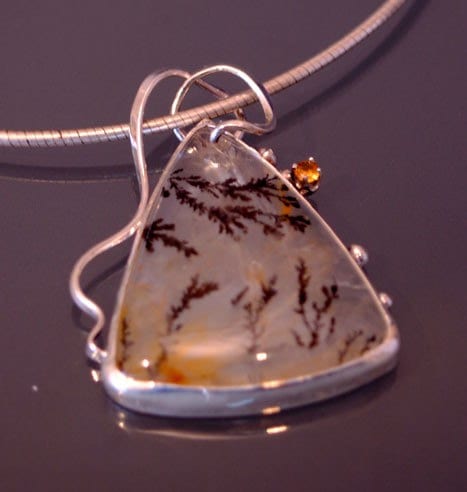
This beautiful blue stone is a quite rare, semi-precious stone that has been prized since ancient days for its deep blue color. Originating mostly in Afghanistan, deposits are also found in Italy, Argentina and the USA. A lighter variety is found in Chile. Lazurite is the mineral responsible for the intense blue color of Lapis Lazuli, which often includes pyrite and calcite as well.
This precious rock has been used for millennia to decorate both the human form and sculpture. The first beads made of Lapis Lazuli are dated to around 3100 BC. Powdered lapis has also been credited as the world’s first eyeshadow! Found intricately included in the mask of King Tut, Lapis Lazuli also composes the background of the famous Sumerian artifact, “Royal Standard of UR.”
Many ancient writings referring to sapphire, even the Bible, may have actually been referring to Lapis. Early on, there were not a variety of words to differentiate between varieties of stone, a blue stone was called simply referred to as a, “blue stone.”
In addition to its historical value, Lapis Lazuli has significant healing properties to both the ancient and modern worlds:
ANCIENT CURES: Ancient cultures believed that Lapis would alleviate the symptoms of a venomous snake bite, cure eye disease, and depression.
MODERN CURES: Lapis is associated with healing in the area of the blue chakra, (the throat). Those who suffer from acid reflux may find alleviation from wearing lapis around their neck. Many who love the stone report an alleviation of anxiety when wearing it. World famous stone therapist, Edgar Cayce, claims that when a piece of lapis is held to the ear, one can hear a very faint high frequency pitch as the stone “sings.”



 quartz) I found out that I was totally wrong about how those beautiful patterns got in the stone! My apologies for any previous mis-information on the subject. As it turns out, the patterns in dendritic quartz are part of a fascinating geological process. Where a deposit of quartz in the ground may have tiny fissures running through it, mineral solutions flow through the rock fissures. Hot mineral solutions including manganese and iron are percolating through the quartz base, and when cooled quickly, they are solidified and frozen in time!
quartz) I found out that I was totally wrong about how those beautiful patterns got in the stone! My apologies for any previous mis-information on the subject. As it turns out, the patterns in dendritic quartz are part of a fascinating geological process. Where a deposit of quartz in the ground may have tiny fissures running through it, mineral solutions flow through the rock fissures. Hot mineral solutions including manganese and iron are percolating through the quartz base, and when cooled quickly, they are solidified and frozen in time!

